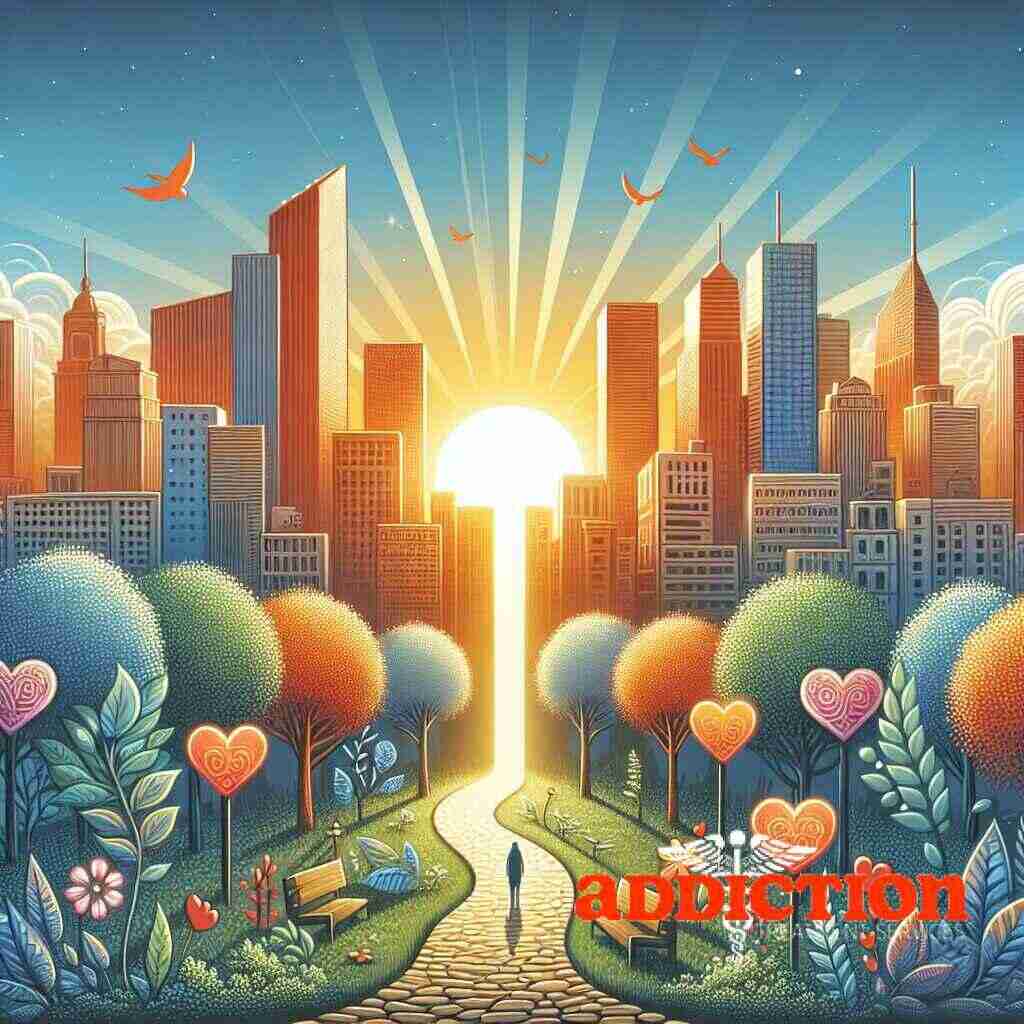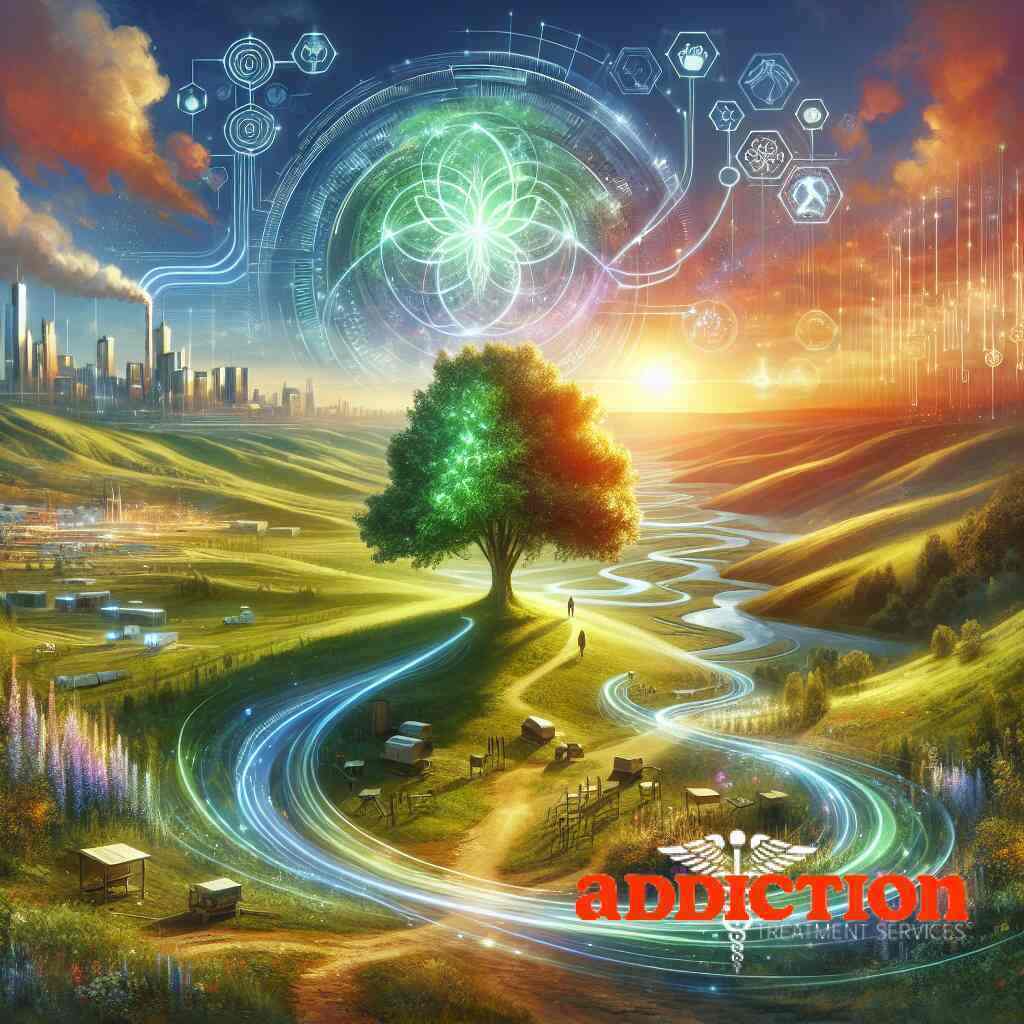 Posted On: 05/29/2024
Posted On: 05/29/2024Navigating the Path to Recovery
Understanding Substance Use Disorders in New York
In New York, just as in the rest of the United States, substance use disorders (SUDs) represent a significant public health challenge. The diverse population of the state means that SUDs can affect anyone, regardless of age, sex, socioeconomic status, or ethnicity. Understanding the scope of these disorders is the first step towards recovery. Substance use disorders in New York encompass a wide range of issues, from alcohol and opioid addiction to the misuse of prescription medications. The effects of these disorders can be devastating, not only on the individual but also on families and communities. It’s essential for New Yorkers to recognize the signs of addiction and be aware of the options for addiction treatment services in New York, to start the journey towards recovery.
The Importance of Choosing the Right Addiction Treatment Service
Selecting the right addiction treatment service is a critical decision for anyone battling a substance use disorder in New York. The appropriate treatment plan can significantly impact the recovery process, making it essential to find a program that fits the individual’s specific needs. Factors to consider include the type of substance used, the severity of the addiction, the presence of co-occurring mental health disorders, and the individual’s personal and professional obligations. Comprehensive treatment services, which may include detoxification, medication-assisted treatment, therapy, and support groups, can provide a strong foundation for recovery. Understanding the available treatment options and how they align with the individual’s needs is crucial in making an informed decision.
Overview of Addiction Treatment Services Available in New York
New York offers a broad array of addiction treatment services designed to meet the diverse needs of its residents. From state-funded programs to luxury rehab facilities, the state is equipped to help individuals at every level of substance use disorder. New Yorkers have access to detoxification facilities in New York, residential and outpatient treatment options, specialized programs for teenagers, women, or veterans, and support for families affected by addiction. State and city health departments often provide resources for finding affordable treatment services, and many nonprofit organizations offer additional support and guidance. Whether someone is looking for an intensive outpatient program in New York or medication-assisted treatment, the key is to start searching and reach out for help as early as possible.
Essential First Steps for New Yorkers
Recognizing the Need for Help
The journey to recovery starts with acknowledging the presence of an addiction. This step can often be the most challenging due to denial, fear of stigma, or simply not understanding what constitutes a substance use disorder. For New Yorkers facing substance abuse, recognizing its impact on your life and the lives of those around you marks the first step towards healing. Substance abuse might manifest through deteriorating relationships, declining work or academic performance, health issues, or legal troubles. Understanding these signs substance use disorder assistance in NY is readily available to guide you through identifying these critical initial signs and seeking help.
Early Intervention Services NY
Early intervention is pivotal in preventing the escalation of substance use disorders. New York offers a wide range of early intervention services geared towards individuals who have just started to experience the negative consequences of substance misuse but are not yet fully entrenched in addiction. These services include educational programs, substance use screenings, and early treatment programs designed to halt the progression of substance abuse. Utilizing early intervention services can significantly increase the chance of a successful recovery by addressing the problem before it fully develops. By taking action early, individuals can avoid the more severe consequences of substance use disorders.
How to Approach a Family Member Struggling with Addiction
Approaching a family member who is struggling with addiction requires compassion, understanding, and patience. It’s essential to educate yourself about addiction as a disease to approach the conversation without judgment. Communicating your concerns openly and honestly is crucial, but it’s equally important to listen to your loved one without interrupting or expressing anger. Offer your support and suggest seeking professional help together. Intervention services in NY can provide guidance and support in planning a constructive approach. An intervention professional can help mediate the conversation, ensuring that it remains productive and that the message of love and concern is effectively communicated. Preparing for possible resistance and being persistent, yet supportive, underscores the importance of your loved one’s well-being and your willingness to support their journey to recovery.
Comprehensive Treatment Options in New York
Exploring Residential Addiction Treatment NY
For many New Yorkers grappling with substance use disorders, residential addiction treatment presents a beacon of hope. These inpatient rehab facilities in New York offer a haven for those seeking to escape the triggers and turmoil of their everyday environments, providing a structured and supportive setting conducive to healing and recovery. Key features of residential treatment include round-the-clock care, customized treatment plans, and access to a variety of therapeutic modalities, ranging from traditional counseling and group therapy to specialized services catering to dual diagnoses or trauma recovery. The immersive nature of residential addiction treatment NY is designed to foster deep, introspective work essential for long-term sobriety, making it a vital option for those in need of comprehensive, uninterrupted support.
Outpatient Treatment Services New York
Outpatient treatment services in New York offer a flexible approach to addiction recovery, enabling individuals to receive therapy and support while continuing with their daily responsibilities. This model of care is particularly suitable for those with less severe addictions, strong social support systems, or post-residential treatment individuals looking to maintain their progress. Outpatient services range from intensive outpatient programs in New York, which may involve several hours of treatment several days a week, to standard outpatient treatment, requiring fewer weekly therapy hours. These programs emphasize behavioral therapy, substance abuse education, individual counseling, and relapse prevention strategies, ensuring that participants have the tools and resources needed to build a foundation for lasting recovery.
The Role of Medication-Assisted Treatment New York
Medication-assisted treatment (MAT) in New York represents a critical component of the state’s comprehensive approach to combating substance use disorders, particularly those involving opioids and alcohol. MAT combines pharmacological interventions with counseling and behavioral therapies to treat the whole person, addressing the physical, psychological, and socio-emotional facets of addiction. By mitigating withdrawal symptoms and curbing cravings, medications like methadone, buprenorphine, and naltrexone can significantly enhance an individual’s ability to engage in and benefit from other forms of treatment. Access to medication-assisted treatment in New York is growing, reflecting a broader recognition of its effectiveness in promoting recovery, improving survival rates, and helping individuals to rebuild their lives free from the constraints of substance dependency.
Specialized Programs for Diverse Needs
Dual Diagnosis Treatment New York
Individuals grappling with both substance use disorders and mental health issues are faced with a unique set of challenges that require specialized care. The concept of dual diagnosis refers to this co-occurrence, necessitating a treatment approach that addresses both issues concomitantly. In New York, dual diagnosis treatment programs are designed to provide integrated services, ensuring that patients receive comprehensive care tailored to their specific needs. These programs combine psychiatric treatment for mental health disorders with addiction therapy, offering a holistic path to recovery. Understanding the intricacies of each patient’s situation allows for the customization of treatment plans, incorporating mental health and substance abuse treatment in NY, that effectively pave the way for healing and long-term management of both conditions.
Intensive Outpatient Program New York
For those who require a level of care that is one step down from inpatient treatment but still need structured support, Intensive Outpatient Programs (IOPs) in New York serve as an excellent option. These programs are ideal for individuals seeking to balance the demands of their daily lives with the need for intensive addiction treatment. An intensive outpatient program in New York typically involves multiple treatment sessions each week, focusing on group therapy, individual counseling, and skill-building activities necessary for substance abuse recovery. IOPs offer flexibility, allowing participants to continue with their employment or education while undergoing treatment. This model fosters independence and resilience, enabling clients to practice real-world application of recovery skills under the guidance of addiction specialists.
Substance Abuse Counseling NY
At the core of many addiction recovery programs is substance abuse counseling, a crucial service that provides individuals with the support and tools necessary for overcoming addiction. In New York, substance abuse counselors play a pivotal role in the journey toward recovery, offering personalized guidance that addresses the root causes of addiction. Through individual or group sessions, counselors help clients develop coping strategies, improve communication skills, and build healthy relationships. Counseling also encompasses education on substance misuse, relapse prevention techniques, and life skills training. Engaging in substance abuse counseling in NY can significantly impact an individual’s ability to achieve and maintain sobriety, making it an indispensable component of the recovery process.
Support Beyond Treatment
Recovery Support Services in New York
New York is home to a variety of recovery support services designed to complement addiction treatment services in New York, offering essential continuity and a sense of community during the post-treatment phase of recovery. These services range from peer-led support groups and recovery coaching to educational workshops aimed at life skill development and sobriety maintenance. Such resources play a crucial role in reinforcing the lessons learned during treatment, providing individuals with a network of support that fosters long-term recovery. Importantly, these services adapt to individual needs, ensuring that every New Yorker seeking recovery can find the support that resonates most with their journey. Engagement with local recovery support services empowers individuals by connecting them with peers who share similar experiences and challenges, creating a community of mutual support and understanding.
Addiction Relapse Prevention NY
Relapse prevention is a critical aspect of the recovery journey, requiring ongoing effort and support. In New York, various programs and strategies are dedicated to helping individuals navigate their lives post-recovery, minimizing the risk of relapse. Strategies often include continued behavioral therapy, stress management techniques, and routine participation in support groups. For those in New York, relapse prevention strategies in New York are readily accessible and can be tailored to meet the individual’s specific needs and circumstances. These strategies may also involve the reinforcement of new, healthy habits and lifestyle changes learned during treatment. By focusing on relapse prevention, New Yorkers can strengthen their resilience against the triggers and challenges that may arise, ensuring a more stable and enduring recovery.
Building a Support System and Community Engagement
Building a robust support system is an integral part of sustaining recovery from substance use disorders. In New York, community engagement and involvement in activities that promote sobriety and wellness are highly encouraged. This can involve volunteering, joining a recreational club, or participating in community events that align with one’s interests and values. Such engagement serves not only to fill the time previously occupied by substance use but also to foster a sense of purpose and belonging. Moreover, it provides opportunities to meet like-minded individuals who support and share in the journey of recovery. New York’s diverse and vibrant communities offer numerous avenues for such engagement, making it easier for recovering individuals to find their niche and build a support network that enriches their path to lasting wellness and fulfillment.
By actively seeking and integrating these support mechanisms, individuals in New York can significantly enhance the effectiveness of their recovery efforts, turning the challenge of recovery into an opportunity for personal growth and community connection.
Holistic and Alternative Recovery Approaches
Incorporating Holistic Treatments into Recovery
Holistic treatments are becoming an increasingly popular complement to traditional addiction recovery methods in New York. These treatments focus on healing not just the body but the mind and spirit of an individual. By integrating practices such as yoga, meditation, acupuncture, and even art therapy into a recovery regimen, individuals can target the underlying causes of their addiction on a deeper level. Holistic therapies offer a sense of calm and balance, which is crucial for those in recovery who often face intense emotional and physical stress. The value of alternative addiction recovery methods in NY lies in their ability to provide comprehensive care that addresses various facets of a person’s being, ensuring a more rounded approach to healing and recovery.
Importance of Mental Health Services in Addiction Recovery
The intersection of mental health and substance use disorders cannot be overstated. In many cases, individuals turn to substance abuse as a way to cope with untreated mental health issues, such as anxiety, depression, or post-traumatic stress disorder. Incorporating mental health services into addiction recovery is crucial for addressing these co-occurring disorders. New York offers a spectrum of mental health and addiction treatment services designed to cater to the dual diagnosis of an individual. By providing both psychopharmacological treatment and behavioral therapies, these services ensure a comprehensive approach to recovery that addresses both the symptoms of mental health conditions and substance use disorders. Prioritizing mental health in the recovery process not only aids in the successful management of substance abuse but also improves overall well-being and stability in an individual’s life.
Lifestyle Changes and Wellness Programs
Adopting a healthy lifestyle is an essential part of sustaining long-term recovery from substance use disorders. In New York, wellness programs are designed to help individuals in recovery make positive lifestyle changes that support their sobriety and overall health. These programs often include nutritional counseling, exercise regimens, stress management techniques, and activities that promote wellness and relaxation, such as mindfulness practices or recreational sports. Making such lifestyle changes can significantly enhance an individual’s physical and emotional resilience, reduce the risk of relapse, and improve quality of life. Engaging in activities that promote well-being, alongside traditional and holistic treatments, provides a solid foundation for individuals to rebuild their lives free from the constraints of addiction.
Understanding Detoxification and Withdrawal
NY Detox Centers: What to Expect
The initial step in treating addiction often involves detoxification, and NY detox centers are well-equipped to guide individuals through this challenging phase. Detox centers in New York provide a safe and medically supervised environment where individuals can rid their bodies of toxic substances. Patients should expect a thorough evaluation upon arrival, where medical professionals determine the level of care required. This process includes medical supervision, medication to ease withdrawal symptoms if necessary, and support services designed to prepare individuals for the next phase of their recovery. Treatment plans are tailored to each person’s specific needs, accounting for their substance of use and the severity of addiction, ensuring that everyone receives the care essential for a successful start to their recovery journey.
Managing Withdrawal Symptoms Assistance NY
Withdrawal can be one of the most demanding hurdles in overcoming substance dependency. The substance withdrawal assistance in New York is designed to help individuals manage these symptoms safely and with as much comfort as possible. Symptoms can range from mild, such as anxiety and insomnia, to more severe physical effects, depending on the substance and duration of use. Support includes around-the-clock care, medication-assisted treatment to alleviate discomfort, and counseling to prepare for ongoing addiction treatment. Emphasizing the patient’s well-being, these services aim to reduce the risk of relapse during the detox phase by addressing symptoms comprehensively, providing a crucial foundation for the journey towards lasting recovery.
The Importance of Medical Supervision During Detox
Detoxing from alcohol or drugs can pose significant health risks, making medical supervision a critical component of the detoxification process. The presence of medical professionals ensures that any complications that arise can be addressed promptly. This supervision is particularly vital for substances associated with potentially life-threatening withdrawal symptoms, such as alcohol, benzodiazepines, and opioids. Medical staff can administer medications to mitigate severe symptoms, monitor vital signs to ensure the patient’s safety, and provide immediate intervention in the event of an emergency. The overarching goal of medical supervision during detox is not only to safeguard the physical health of the individual but also to support their emotional and psychological needs during this taxing period, laying a solid groundwork for the comprehensive treatment that follows.
Resources for Families and Caregivers
Supporting a Loved One During Recovery
Helping a loved one through the recovery process can be both challenging and rewarding. It requires a delicate balance of support, understanding, and setting boundaries. Family members and caregivers play a pivotal role in this phase, often being the primary source of encouragement and accountability for someone grappling with substance use disorder. However, it’s essential to remember that recovery is a journey not just for the individual but for the entire family. Engaging in open communication, education on substance abuse and recovery, and seeking support for alcohol addiction near New York can provide caregivers with the tools needed to assist their loved ones effectively. Additionally, engaging in family therapy or support groups can offer invaluable insights and coping strategies, ensuring that the caregiving process strengthens the family unit rather than causing additional strain.
Navigating the Impact of Addiction on Families
The impact of addiction on families can be profound, affecting each member in different and often unexpected ways. Unlike other health challenges, addiction comes with its stigma and set of complexities that can strain familial relationships to their breaking points. Understanding that addiction is a disease rather than a moral failing is the first step toward healing these wounds. Families must navigate their emotional responses, ranging from anger and confusion to guilt and shame, which can interfere with providing the necessary support for recovery. Emphasizing the importance of self-care is crucial for caregivers, who may find resources and counseling designed to manage stress and emotional turmoil invaluable. Accepting that professional help from facilities specializing in addiction treatment and family dynamics can play an essential role in the family’s healing process.
Resources and Programs for Families of Substance Users
For families of substance users, finding appropriate resources and programs that can cater to their needs is critical. These resources offer education, emotional support, and practical guidance tailored to those navigating a loved one’s recovery journey. Various organizations and addiction treatment centers in NY provide family programs that include counseling sessions, workshops on addiction and recovery, and peer-led support groups. Such programs help families understand the nature of substance use disorders, develop effective communication strategies, and learn how to set healthy boundaries. Furthermore, online platforms and local community services can be a source of continuous support, offering access to educational materials and connections to other families undergoing similar challenges. By tapping into these resources, caregivers can build a network of support that empowers them to play a positive role in their loved one’s recovery, while also taking care of their well-being.
Finding the Right Treatment Facility in NY
What to Look for in Addiction Treatment Centers in NY
Choosing the right addiction treatment center in New York is a crucial step toward recovery. At Addiction Treatment Services, we emphasize the importance of factors such as accreditation, personalized treatment plans, qualified staff, and a continuum of care. Accreditation by recognized bodies ensures that the facility meets stringent standards of care and service. It’s vital that the center offers personalized treatment plans that cater to the individual’s specific needs rather than a one-size-fits-all approach. The qualifications of staff, from medical professionals to counselors, significantly impact the quality and effectiveness of the treatment provided. Finally, a facility that offers a range of services from detox to outpatient support is likely to be more effective in supporting long-term recovery. These elements are paramount in selecting a facility that can offer the best chance for a successful outcome.
Navigating Insurance and Payment Options
Understanding your insurance coverage and available payment options is an essential part of the process when seeking addiction treatment. Many people are unaware of the extent to which their insurance policies cover treatment for substance use disorders. It’s advisable to directly contact your insurance provider to find out what kinds of treatment are covered under your policy, including detox, inpatient, and outpatient services. Addiction Treatment Services also recommends investigating alternative payment options, which may include payment plans offered by the treatment center, scholarships, or grants designed for individuals seeking help for addiction. Some facilities may offer sliding scale fees based on income. Being equipped with this information can significantly alleviate the financial stress associated with recovery and allow you to focus on what’s most important: your path to wellness.
Using Addiction Treatment Services Directory for NY Residents
The journey to finding the appropriate treatment facility can feel overwhelming. That’s where the Addiction Treatment Services Directory proves invaluable. Our comprehensive directory is designed specifically to simplify the search process for New York residents, listing reputable addiction treatment centers throughout the state and across our service areas. Whether you’re in need of New Jersey addiction treatment centers, looking into Connecticut substance abuse treatment, or exploring outpatient treatment options near New York, our directory has got you covered. By providing detailed profiles on each facility, including the types of treatment programs offered, accreditation details, and reviews from those who’ve experienced the services firsthand, we aim to empower individuals and families with the resources to make well-informed decisions on their path to recovery.
A Brighter Road Ahead
The path to recovery from substance use disorders can be transformative. This concluding section of the Ultimate Recovery Guide for New York Residents celebrates the victories of those who’ve traversed the perilous journey of addiction to find sobriety, the critical role of continued care in maintaining a clean lifestyle, and the cultivation of hope and resilience essential for long-term recovery.
Success Stories from New York Residents
The narratives of New York residents who have successfully overcome addiction are beacons of light for individuals still navigating the path to recovery. These stories highlight the personal challenges faced, the resources utilized, including Connecticut substance abuse treatment, and the pivotal moments of realization that led to a profound commitment to change. Each account is a testament to the possibility of liberation from the grip of addiction through a combination of professional help, personal determination, and support from loved ones. Through sharing these narratives, we foster a community of empathy and understanding, showcasing that recovery is both possible and achievable.
Continued Care and Staying Clean
Continued care is imperative in safeguarding the strides made during the initial phases of recovery. Staying clean is an ongoing process that extends far beyond the confines of a treatment facility. It involves regular engagement with support groups, adherence to therapy sessions, and, for many, the continuation of medication-assisted treatment to manage cravings and prevent relapse. The commitment to sobriety is a lifelong journey of growth and self-discovery. It’s bolstered by routine, healthy lifestyle choices, and, importantly, a network of people who provide support and accountability. Understanding the dynamic nature of recovery, where each day presents a new opportunity for reinforcement of sobriety, is crucial in the journey towards lasting wellness.
Fostering Hope and Resilience in the Recovery Journey
Hope and resilience are the cornerstones of a successful recovery journey. Cultivating a hopeful outlook inspires a belief in a future beyond addiction, a vision where personal goals and fulfillment are attainable. Resilience, developed through the trials and tribulations of overcoming substance use, empowers individuals to face ongoing challenges with strength and determination. Encouragement from families, therapists, and peers plays a significant role in nurturing these qualities. Additionally, engaging in activities that bolster self-esteem and provide a sense of accomplishment can reinforce resilience and fortify one’s commitment to recovery. Fostering hope and resilience is not just critical for the individual in recovery but also contributes to the healing and fortification of the communities they belong to, making the journey towards sobriety valuable not only for the individual but for society at large.
In conclusion, the road to recovery for New York residents, while fraught with challenges, is paved with opportunities for growth, healing, and transformation. Through comprehensive treatment options, enduring support systems, and a commitment to personal development, individuals grappling with substance use disorders can navigate their way to a brighter, healthier future. By focusing on success stories, the importance of continued care, and the cultivation of hope and resilience, this guide serves as an essential tool for those embarking on their recovery journey, offering guidance, encouragement, and a reminder that they are not alone.
Frequently Asked Questions
Question: What types of addiction treatment services in New York are available through your directory?
Answer: Addiction Treatment Services provides an extensive directory of addiction treatment centers across New York, catering to a broad spectrum of needs. We cover everything from NY detox centers, residential addiction treatment in NY, to outpatient treatment services in New York. Our resources also extend to specialized care such as dual diagnosis treatment New York and medication-assisted treatment New York. Our goal is to connect individuals with the right program, whether it be for substance abuse treatment in NY, New York drug rehabilitation programs, or alcohol addiction treatment near New York.
Question: How does ‘Ultimate Recovery Guide for New York Residents’ assist families of those struggling with substance use disorders?
Answer: The ‘Ultimate Recovery Guide for New York Residents’ helps families by providing comprehensive information on substance use disorders, recovery processes, and available addiction treatment services in New York. It emphasizes the importance of early intervention services NY, offering guidance on how to approach a family member about their substance abuse and the steps toward finding the right support, whether through substance abuse counseling NY or intensive outpatient programs in New York. The guide also sheds light on the resources and programs for families of substance users, encouraging community engagement and building a support system for long-lasting recovery.
Question: Can I find options for medication-assisted treatment in New York using your service?
Answer: Yes, our directory includes a range of addiction treatment services in New York that offer medication-assisted treatment. This type of treatment is crucial for managing withdrawal symptoms and cravings and is particularly effective for those dealing with opioid or alcohol addiction. By utilizing our addiction treatment services directory, you can access detailed profiles of treatment centers that provide medication-assisted treatment in New York, ensuring you find a program that meets your specific needs.
Question: Are there any programs for mental health and addiction treatment in NY listed in your directory?
Answer: Absolutely. Our directory acknowledges the intricate relationship between mental health and substance use disorders, listing facilities that offer integrated dual diagnosis treatment in New York. These programs are designed to address both mental health issues and addiction simultaneously, providing a holistic approach to recovery. By browsing our directory, you can find New York addiction recovery resources that emphasize both behavioral health services in New York and mental health services, ensuring comprehensive care.
Question: What support does Addiction Treatment Services offer for long-term relapse prevention in New York?
Answer: Addiction Treatment Services connects individuals with a wide range of New York addiction recovery resources aimed at fostering long-term sobriety and preventing relapse. This includes connecting you with programs offering ongoing addiction relapse prevention in NY, which encompasses education, support groups, continued therapy, and other behavioral health services in New York. Our focus is on ensuring individuals not only achieve sobriety but also have access to the necessary tools and community support to maintain their recovery and build a resilient foundation for their future.




